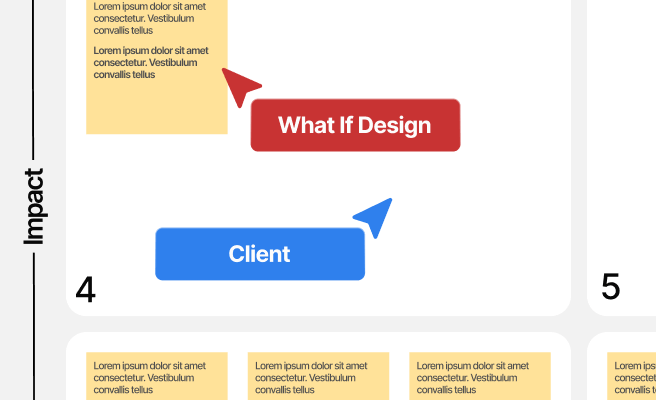Data Synthesis
<p>Data synthesis is a crucial process in the field of data analysis and research. It involves combining data from multiple sources to produce a comprehensive dataset that can provide deeper insights. This method is essential for climate tech companies looking to integrate diverse data points to understand complex environmental patterns and make informed decisions.</p>
<p>Historically, data synthesis has been used in various scientific fields, including meteorology, healthcare, and environmental studies, where large volumes of disparate data need to be amalgamated to generate actionable knowledge. For climate tech, synthesizing data from different sensors, models, and observational studies is vital for developing effective solutions for carbon capture and sustainable agriculture.</p>
<h2>Components of Data Synthesis</h2>
<p>Data synthesis typically involves several core components:</p>
<ul>
<li><strong>Data Collection:</strong> Gathering relevant data from multiple sources, such as sensors, databases, and research studies.</li>
<li><strong>Data Integration:</strong> Combining the collected data into a single dataset, ensuring consistency and compatibility.</li>
<li><strong>Data Cleaning:</strong> Identifying and rectifying errors, inconsistencies, and missing values in the integrated dataset.</li>
<li><strong>Data Transformation:</strong> Converting data into a suitable format for analysis, including normalization and standardization.</li>
<li><strong>Data Analysis:</strong> Applying statistical and computational methods to extract meaningful insights from the synthesized data.</li>
</ul>
<h2>Benefits of Data Synthesis</h2>
<p>Implementing data synthesis offers various benefits, particularly for climate tech companies:</p>
<ul>
<li><strong>Comprehensive Insights:</strong> By combining data from different sources, organizations can obtain a holistic view of the problem being studied, such as climate change impacts.</li>
<li><strong>Improved Accuracy:</strong> Synthesis enhances data accuracy by cross-verifying information from multiple datasets.</li>
<li><strong>Resource Optimization:</strong> Efficiently utilizing existing data reduces the need for duplicative data collection efforts.</li>
<li><strong>Enhanced Decision-Making:</strong> Integrated data allows for better-informed decisions, crucial for climate tech innovations.</li>
</ul>
<h3>Challenges in Data Synthesis</h3>
<p>Despite its benefits, data synthesis presents several challenges:</p>
<ul>
<li><strong>Data Inconsistency:</strong> Different sources may use varying formats, units, and standards, complicating the integration process.</li>
<li><strong>Quality Control:</strong> Ensuring the accuracy and reliability of synthesized data requires robust validation and cleaning procedures.</li>
<li><strong>Scalability:</strong> Handling large volumes of data from diverse sources can be computationally intensive and require advanced technologies.</li>
</ul>
<h2>Real-World Examples in Climate Tech</h2>
<p>Climate tech companies are leveraging data synthesis to drive innovation and sustainability. For instance:</p>
<ul>
<li><a href="https://projectvesta.org/" style="color:#2896FF; text-decoration:underline;">Project Vesta</a> combines data from ocean chemistry, weather patterns, and carbon capture studies to develop natural carbon sequestration methods using olivine sand.</li>
<li><a href="https://www.climate.io/" style="color:#2896FF; text-decoration:underline;">Climate AI</a> integrates data from satellite imagery, climate models, and agricultural databases to provide predictive analytics for sustainable farming practices.</li>
</ul>
<p>These examples illustrate how data synthesis can lead to innovative solutions in addressing climate change and promoting sustainable practices.</p>
<h2>Conclusion</h2>
<p>Data synthesis is a powerful tool for generating comprehensive insights from diverse data sources. For climate tech companies, it is indispensable for developing effective solutions to environmental challenges. By addressing the inherent challenges and leveraging advanced technologies, organizations can harness the full potential of data synthesis to drive innovation and sustainability.</p>
<p>Learn more about improving your <a href="https://en.wikipedia.org/wiki/Data_synthesis" style="color:#2896FF; text-decoration:underline;">data synthesis strategies</a> to stay competitive in the climate tech industry.</p> <p>If you’re looking for inspiration to elevate customer and user experience for enterprise-grade products, View our work with the Ministry of Health of Saudi Arabia for curating the UX of an <a href="https://www.whatifdesign.co/work/enterprise-software-for-hospitals" style="color:#2896FF; text-decoration:underline;">Asset Management Tracking Platform</a></p>
<p>Ready to get started? <a href="https://cal.com/akhilak/what-if-design?duration=30" style="color:#2896FF; text-decoration:underline;">Book a 1:1 consultation call</a> with us today.</p>

Let's scale your impact with great design.
Free consultation, no sales pitch
Thank you! Your submission has been received!
Oops! Something went wrong while submitting the form.
Let’s talk
Nothing great is built alone.
Let’s connect about your vision, our work and how we can collaborate.
Get in touch

